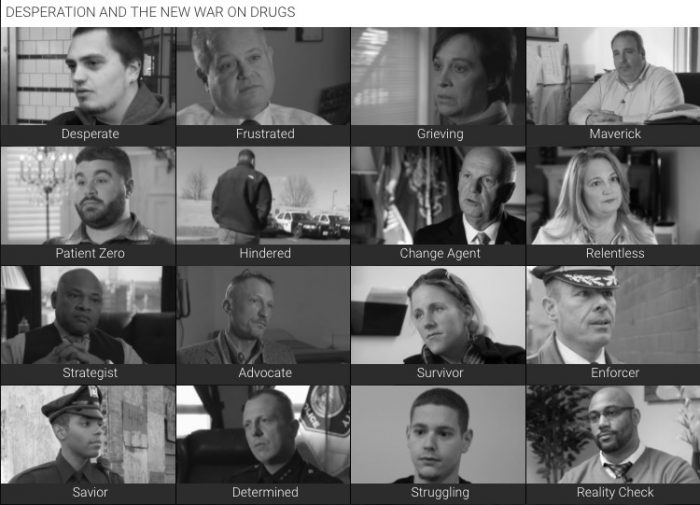
When the University of Michigan announced the finalists for the 2017 Livingston Awards this month, Yoni Greenbaum noticed something that he thought was telling. Out of the 18 finalists for the local news reporting prize, NBC 10 reporters Vince Lattanzio and Morgan Zalot were the only two from local television stations. And 2017 is no anomaly: For the 2015 and 2016 finalists, no reporters from TV stations were nominated at all.
For Greenbaum, who heads up NBC 10’s multiplatform efforts, the Livingston nomination vindicates the station’s investment in web-exclusive reporting, which has been core to its strategy since late 2015. Lattanzio and Zalot were nominated for their work on Generation Addicted, a big five-month digital video project that investigated how heroin and opioid addiction have impacted communities in the Philadelphia area and across the United States. The project was the second created as a part of the “NBC10 Digital Exclusives” initiative, which previously covered the city’s homelessness problem with Faces of Homeless Youth. The station’s eight-person digital team is building on the model with a project focused on suicide and mental health, which will go live in June.
These projects were developed to help NBC 10 go beyond the local news staples of breaking news, crime, weather, entertainment news, and traffic, according to Greenbaum. The station’s efforts are rare today, he said, both among the NBC affiliates around the country and TV stations as a whole. “Broadcast doesn’t do this work, and digital broadcast still doesn’t do this type of work,” he said. “Storytelling is a differentiator. I wish we did more of it on the air, but since we don’t, we’re doing it in digital.”
While the web has become an increasingly key strategic imperative for broadcast stations, web-exclusive content is still a small part of stations’ overall output. In a recent survey, the Radio Digital Television News Association found that just a third of the content on TV stations’ websites is web-exclusive. Greenbaum wanted the station to go further. Rather than repurpose existing NBC 10 broadcast segments for the web, the station has gone in the opposite direction, doing its own independent reporting and letting reporters develop their own sources. “We’re trying to be complementary, not competitive,” he said.
For NBC 10, the web focus also overlaps with another one of the station’s big initiatives: growing the audience footprint of its owned Telemundo62 station. Almost 10 percent of the Philadelphia region (544,000 people) is Hispanic, according to 2014 Pew Research data. For NBC 10, that represents a substantial potential audience, but until recently the station wasn’t doing enough to grow it, Greenbaum said. To help turn that around, the station has gradually built a team of bilingual reporters to support both its broadcast and digital production.
This approach has been core to the station’s upcoming suicide project, which will include two 45-minute digital documentaries — one of which is being developed exclusively for the Telemundo62 audience and will focus on how issues related to depression and suicide affect teenage Hispanic girls. This is the first time NBC 10 is producing something for both stations; the team is also producing longform articles and shorter videos in both English and Spanish.
“We’re trying to go beyond the easy thing of saying ‘Let’s just take everything NBC did and translate it into Spanish and say that’s enough,'” Greenbaum said. “It’s really difficult, but the status quo isn’t good enough. We can’t say we’re supporting this community and not put more resources into producing for it.”
NBC 10’s investment in original content comes as interest in television news among young people continues to decline. Among Americans 18 to 29, just 27 percent say they often get their news from television, according to 2016 data from Pew. That number jumps to 45 percent among those 30 to 49. A focus on digital helps “bring that younger audience to the table,” said Greenbaum. “TV is not necessarily the first, second, or even third place that they’re going.”
And a core part of that, he said, is effectively leveraging the big platforms that people are using. With its upcoming suicide project, for example, NBC 10 plans to use Facebook Live to broadcast a roundtable discussion with the reporters that worked on it to talk about what they learned and how to address the problem. The team is also working on more ways to engage viewers with in-person events, such as the community forum it held last April at Philadelphia’s Constitution Center.
“Theres a huge community out there that’s interested in the content that we can serve. We just have to figure out what is it that they want, how to get it to them, and how to habituate that use,” Greenbaum said.